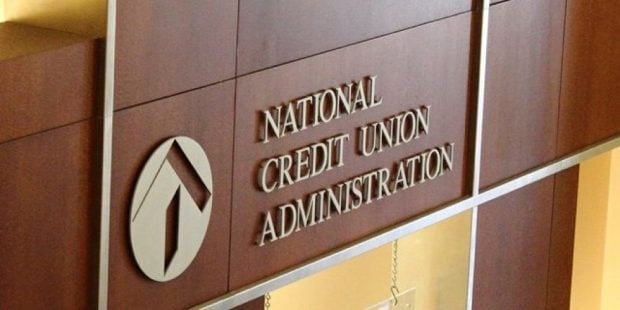 Lobby of the NCUA.
Lobby of the NCUA.
In the September NCUA board meeting, it was reported that the National Credit Union Share Insurance Fund (NCUSIF) equity ratio has dropped to 1.22% at mid-year from where it was in December at 1.35%. This is understandable given the historically unprecedented deposit growth, which was driven by members depositing COVID-19 economic impact payments.
Some believe this will trigger an NCUSIF premium assessment. Others are suggesting solutions to a problem that doesn't exist. Until the NCUSIF equity ratio falls below 1.20%, there is no need for a premium, restoration plan or any other off-the-wall fix.
Recommended For You
The NCUA also reported that, as in the past, many credit unions will be required to true-up their 1% capitalization deposit this October. As provided by the Federal Credit Union Act, each insured credit union pays a capitalization into the NCUSIF equal to 1% of its insured shares.
Next month, when credit unions with over $50 million in assets true-up their capitalization deposits, the NCUSIF will receive an additional $1.5 billion from insured credit unions.
With this additional capital, the NCUA projects the NCUSIF equity ratio will finish 2020 at 1.32% — a reading that is well above the level it has operated at over the past 30 years, substantially higher than the 1.20% threshold, which requires the NCUA to take corrective action.
What's more, this equity ratio level of 1.32% would also be comfortably above the level that CUNA has continued to call on the NCUA to set as the Normal Operating Level: 1.30%. Ultimately, credit union financials underline the system's health and resilience. The NCUA's most recent quarterly update showed that the number of credit unions rated among the least safe and sound — those categorized as CAMEL codes 4 and 5 — decreased by over 5%, with those categorized as code 3 falling by another 3.3%. Furthermore, there has been only one small credit union failure this year with an almost imperceptible effect on the NCUSIF.
In short, there is no foreseeable need for a deposit insurance premium assessment, and the steps NCUA is taking to true-up the fund is consistent with that perspective.
The economy is fragile, and the prolonged trajectory of the COVID-19 crisis will undoubtedly continue to stress credit unions, making a strong NCUSIF even more important. By truing up the fund now, the NCUA and credit unions are taking a responsible step to reinforce the insurance fund's soundness and forestall more aggressive action for the foreseeable future.
 Mike Schenk
Mike Schenk Mike Schenk is Deputy Chief Advocacy Officer for Policy Analysis and Chief Economist for CUNA in Washington, D.C.
© Touchpoint Markets, All Rights Reserved. Request academic re-use from www.copyright.com. All other uses, submit a request to [email protected]. For more inforrmation visit Asset & Logo Licensing.






